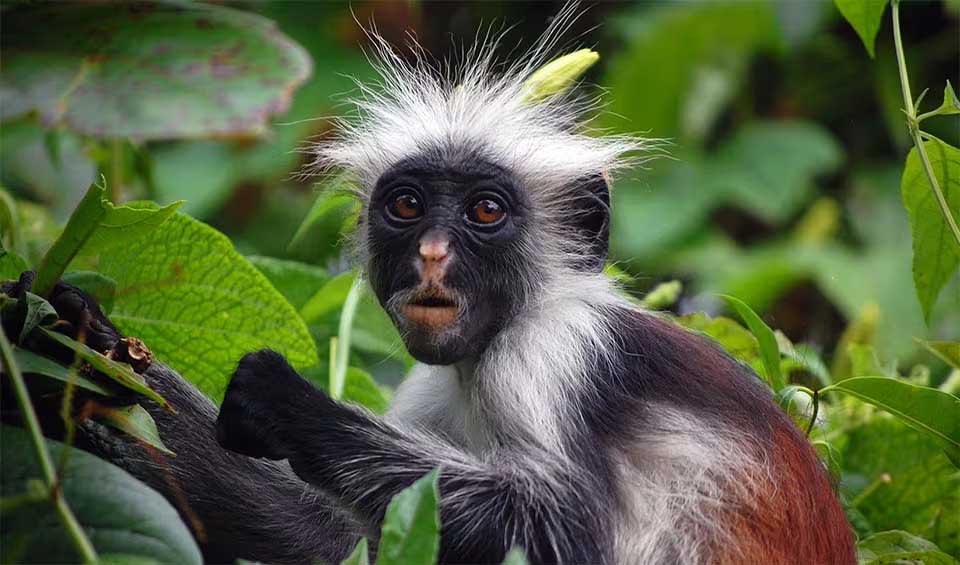Piliocolobus – Red colobuses
Highly sensitive to hunting and habitat destruction, they are probably the most threatened genus of primates in Africa
Red colobuses are a distinctive group of Old World monkeys found across various regions of western, eastern, and central Africa. These primates, once grouped within the genus Procolobus, have been recognized for their unique ecological and behavioral traits, which distinguish them from their relatives, including the black-and-white colobuses of the genus Colobus. The reclassification into their own genus underscores the importance of understanding their specific conservation needs and the distinct challenges they face across their range.
Piliocolobus monkeys are predominantly arboreal, spending the majority of their lives in the treetops of Africa’s dense forests. Their adaptation to an arboreal lifestyle includes long limbs and a strong grasp, facilitating movement among the branches in search of food and shelter. These monkeys’ reliance on forest habitats makes them particularly vulnerable to deforestation and habitat fragmentation, which are prevalent threats across their geographical range.
Red colobuses have a diet that primarily consists of leaves, making them one of the few primate groups that are specialized folivores. This dietary preference impacts the forest ecosystems in which they live, as red colobuses play a crucial role in controlling vegetation growth and contributing to the nutrient cycle within their habitats. Their feeding behavior also aids in seed dispersal, further emphasizing their importance in maintaining the biodiversity and health of their ecosystems.
Red colobuses form social groups that vary in size but typically include multiple females, their offspring, and one or more males. These groups are characterized by complex social interactions, including grooming, vocal communication, and cooperative care of the young. Social bonds within the group are essential for protection against predators and for successful foraging and resource allocation.
Species in this genus
Western red colobus
They have complex stomachs that allow them to digest mature or toxic foliage that other monkeys cannot
Zanzibar red colobus
Locals call it “kima punju,” which means “poison monkey” in Swahili, due to its strong, unpleasant smell


